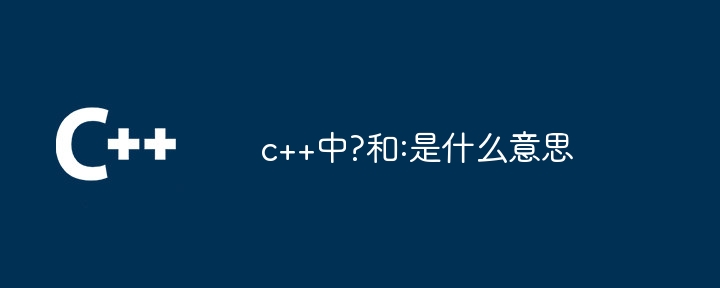Home >Backend Development >C++ >What does 'and:' mean in c++?
What does 'and:' mean in c++?
- 下次还敢Original
- 2024-04-26 15:51:14705browse
Conditional expression operators in C: The ? operator returns one of two values based on a condition. The : operator converts a Boolean expression to an integer value, which is 1 for true and 0 for false.

The ? and:
#C in ? and: operators are used in conditional expressions, Similar to if-else statements in other programming languages.
? Operator
? operator is a ternary operator that returns one of two values based on a conditional Boolean expression. The syntax is:
<code class="cpp">condition ? value_if_true : value_if_false;</code>
where:
-
conditionis a Boolean expression. -
value_if_trueis the value returned ifconditionis true. -
value_if_falseis the value returned ifconditionis false.
Example:
<code class="cpp">int x = 10; int result = (x > 5) ? 1 : 0; // result 将为 1,因为 x > 5 为真</code>
: Operator
: The operator is a unary operator, which Convert a Boolean expression to an integer value. The syntax is:
<code class="cpp">!expression;</code>
where:
-
expressionis a Boolean expression.
The : operator returns 1 if expression is true and 0 if expression is false.
Example:
<code class="cpp">bool flag = true; int result = :flag; // result 将为 1,因为 flag 为真</code>
The above is the detailed content of What does 'and:' mean in c++?. For more information, please follow other related articles on the PHP Chinese website!

